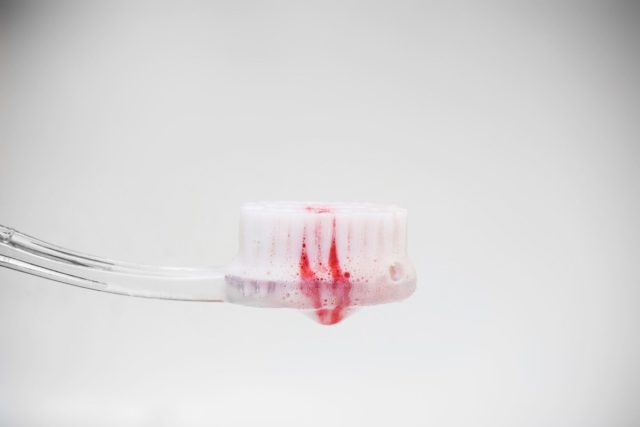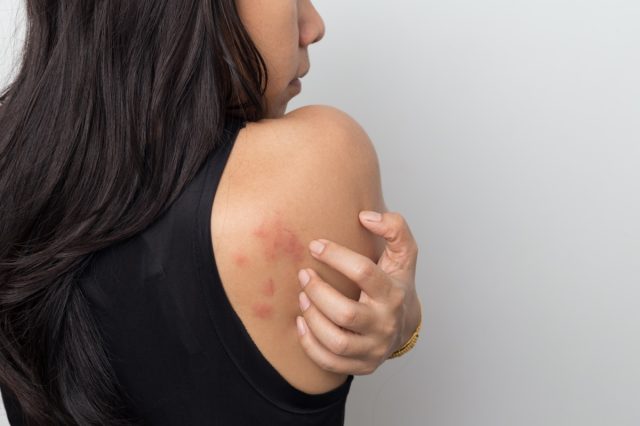Blood that is "too thin" means it's low in platelets, the natural substance that helps blood to clot. It's a condition called thrombocytopenia, and it can be caused by certain medical conditions or a reaction to blood-thinning medications. It's dangerous because once bleeding begins, it can be hard to stop. These are some of the signs that your blood is too thin, according to experts.
Frequent Bruising

According to the Mayo Clinic, a common symptom of thrombocytopenia is easy or excessive bruising, also known as purpura. You might bruise more readily than you used to, or a relatively minor injury might cause a larger bruise than normal.
Easy or Unusual Bleeding

Prolonged bleeding, even from small injuries, is another sign that the blood is thinner than it should be, says the National Institutes of Health. You might also find that you have frequent nosebleeds, bleeding gums, heavier menstrual periods, or notice blood in your stool or urine.
Reddish Spots on the Skin

If your blood is too thin, you might experience superficial bleeding into the skin. It might look like a rash of small, flat reddish-purple spots known as petechiae. According to the Mayo Clinic, these usually appear on the lower legs.
Fatigue

More easy bleeding could cause other issues in the body, including iron deficiency and anemia. That could result in feelings of fatigue. If your low platelet count is caused by an immune system disorder, your fatigue could be caused by other problems with immune-related issues, like thyroid disease, says the Platelet Disorder Support Association.
When to See a Doctor

Experts say you should consult your doctor if you notice symptoms of thrombocytopenia. The condition can be dangerous. "Without proper treatment, thrombocytopenia can cause serious bleeding," says the National Institutes of Health. "This can happen both inside your body and out of your skin. It can be life-threatening."
If overly thin blood is caused by medication, your doctor may adjust your dosage or change that medication. If the cause for your symptoms is unclear, your doctor may perform tests on your blood and bone marrow. You may need no treatment if the case is mild, or medication or procedures might be warranted if your bleeding is serious, you have a high risk of complications, or a medical condition is causing the low platelet count.
No comments:
Post a Comment